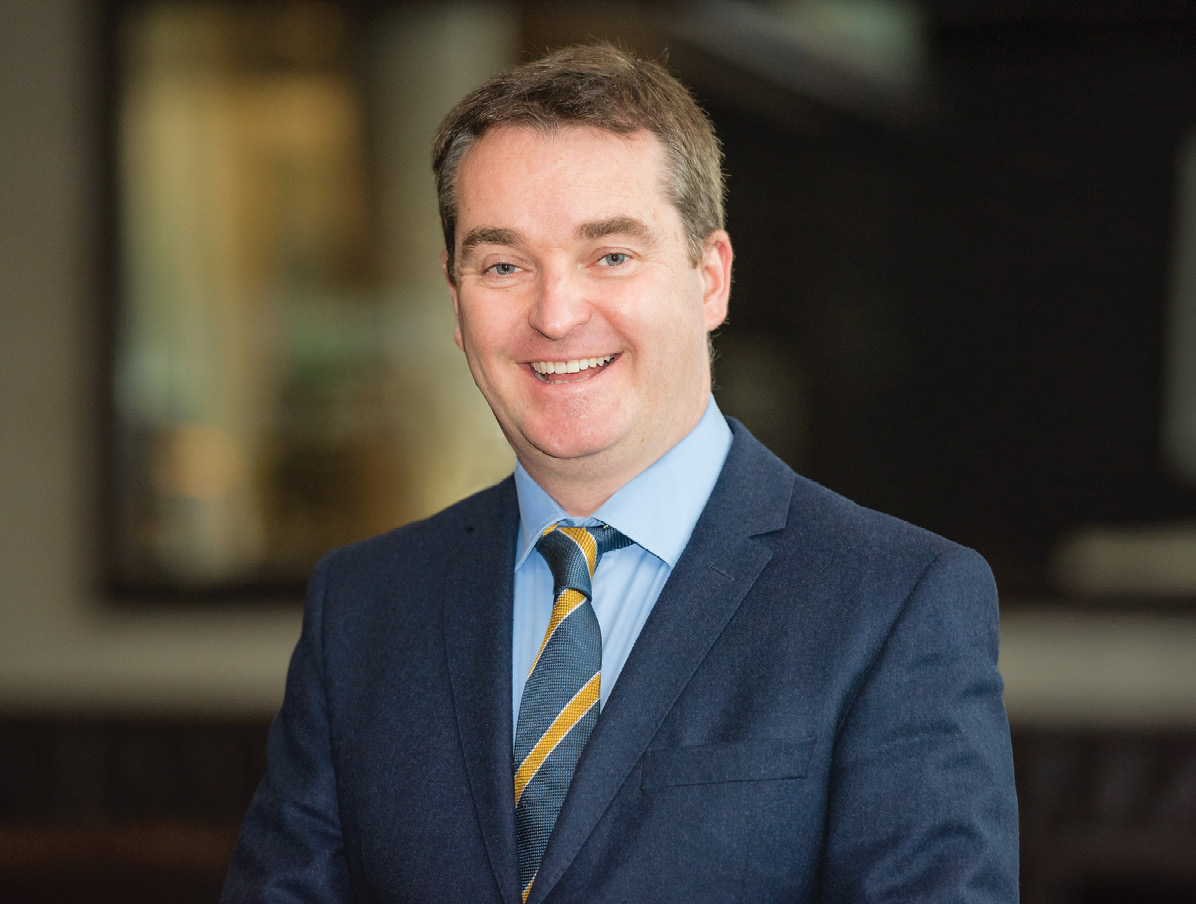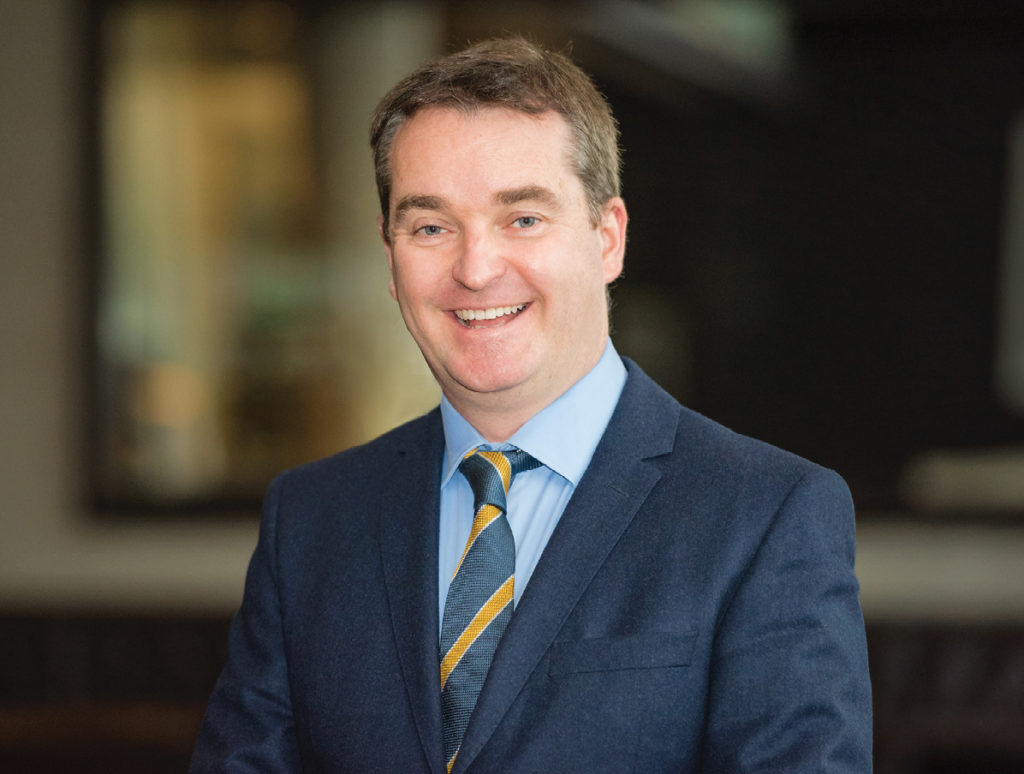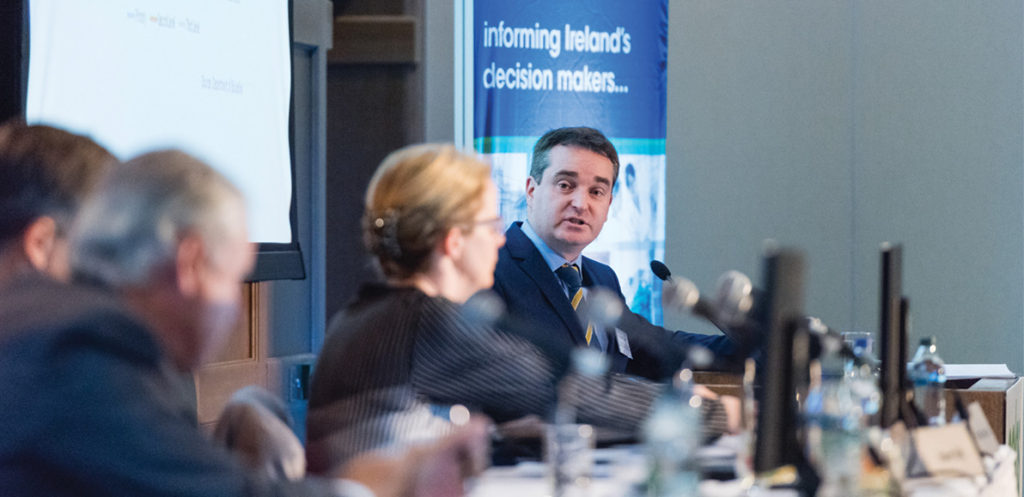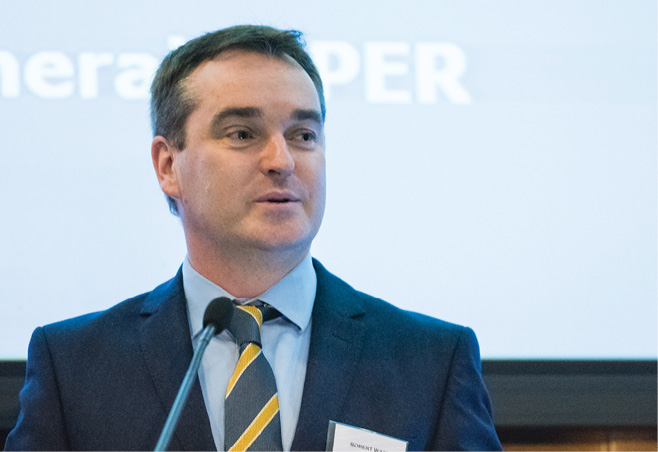Reform: the next phase


Robert Watt, Secretary General of the Department of Public Expenditure and Reform talks to Owen McQuade about what has been achieved to date on the reform of public services and what the next phase of reform will look like.
When asked how the reform of public services has progressed, through two Government reform plans, Robert Watt is keen to firstly define ‘reform’ – perhaps to reinforce its continued relevance as we go into 2017. “Reform has always been about improving productivity in the public service, which means providing the same services for lower cost or a higher value of service for the same or lower costs or improving the quality of service. We need to always keep in mind what reform means. In essence it is about making the public service more effective for the citizens it serves, whilst improving productivity.”
The context of reform has changed from the days of the financial crisis, with the economy now recovered. The “burning platform” of austerity is no longer the motivator for reform. Watt says the motivation is now the enormous demands being made of the Exchequer from a whole variety of quarters. There are many growing demands on the public service to improve public services. These include rising expectations of citizens, an ageing population, a demographic bulge impacting on school numbers and a growing list of new demands on services. “For example, the health service will see the highest level of investment by government in 2017. The real challenge is how do we use those resources and reconfigure services to address the growing demand we have in health and right across all public services.”

Against such a backdrop Watt says that the imperative for reform still exists and the public service is now moving into the next phase of reform. “The next phase of reform will build on what we have achieved already. A lot has been achieved in each of the sectors and more broadly with things such as: better procurement, better utilisation of resources, embracing digital, using open data, deploying shared services, an improved way of commissioning services for results and having a more accountable relationship with service providers.”
Continuing on the theme of building on what has been achieved already Watt highlights two areas the next phase of reform will focus on. The first of these is digitisation. “We have already had a lot of success with digitising public services. There are 2.2 million people signed up to the Public Services Card, which has enormous capacity to enable us to provide services online. The next phase of reform will see an acceleration of the types of services we provide to people online. We hope the type of experience people have with the Revenue will be replicated across the public service, so that when people are renewing their driving licence or their passport or claiming social welfare they can do it in a total end to end solution and that will be a big part of the reform programme for the future.”
“In essence it is about making the public service more effective for the citizens it serves, whilst improving productivity.”
The second element will be around data. “We are developing a national data infrastructure where we are combining different data sets to improve the service we are providing to citizens and also to improve our policy capacity. There is a lot of talk about the use of data in the public service, with things like big data. We have an enormous amount of data and the challenge for us is to join it up using the PPS number to enable policy makers to be better informed about the implications of policy changes and the challenges they face,” he explains.
Achievements
Looking at the achievements so far in the public service reform Watt highlights the shared services projects which include a HR and pensions administration shared service centre, as part of the National Shared Services Office. Based in Clonskeagh in Dublin, it is now servicing 39 public bodies and has 34,500 customers. The consolidated payroll service is now paying 102,000 people from the payroll shared service centre and by the end of 2017 all the public bodies that were in the scope of the project will be paid by the payroll centre. “We have gone from a very high cost and inefficient model of providing these back office services to a consolidated approach which is leading to service improvements and lower costs.”
“Centralised procurement is now also a shared service that has delivered significant savings and has led to a professionalisation of procurement, with the Office of Government Procurement and that is something we are going to build on with Paul Quinn and his team,” he adds.
The next phase will see the most ambitious project to date with a financial management shared service where financial management across the vast majority of public service bodies will be consolidated into a single system. The government has signed a contract with Accenture and Oracle which will see the consolidation of financial management systems over the next four years. “At the moment we are using different systems and different types of processes. It doesn’t provide us with the financial information we need and it is very expensive and there are issues around its future resilience. The financial management shared service is a very significant change for the Civil Service. We need to prepare accounts that are 100 per cent correct each year and we need to comply with financial regulations in the public service which are very important in how we spend public money. We need to ensure that the financial management system changes are implemented in a way that allows us to deliver what we are already delivering but also improves the functionality of the system and to make savings.”

“we have gone through more change in the last five years than in maybe the previous 30 years…
I think the Civil Service has been transformed.”
Other achievements include the use of open data, which was a policy change brought in under the reform action plan. There are now 4,400 data sets released by 900 public bodies and there are commercialisation opportunities being generated by the release of this data. Open recruitment has “worked well” with people right across the grades being recruited into the Civil Service “and now people can come into the Civil Service at any stage in their career.” Being an economist by training, Watt is particularly proud of the Government Economic Service which was established in 2013 “and we now have a group of economists working away on a whole variety of issues.” The Public Services Card is another success Watt highlights with 2.2 million users: “We now have a lot of data behind the cards now that enables us to provide services for citizens in a more efficient way.”
On the internal management of the Civil Service he says that the approach taken to HR, which means more accountability, has been changed with a focus on “supporting and investing in our people.”
“We have seen a whole variety of things introduced to improve the performance of the Civil Service and we have gone through more change in the last five years than in maybe the previous 30 years in terms of structures, how we procure, how we share services, our approach on data, digitalisation and accountability. I think the Civil Service has been transformed.”
“This has been achieved by the support from people right across the government departments, across all grades, who have stepped up to the challenge and have worked with us on all these initiatives and want to see a Civil Service that is world-class and that delivers for, and has the respect of, the citizens it serves. While we have made a lot of progress the Civil Service Renewal plan contains a whole range of measures we are working to improve our capability and capacity and also to create a better work environment for people.”
In concluding, Watt looks to the next phase of reform and returns to his key message that “reform is never done. Change is now permanent. We are ambitious for the future of the public service and there is no let up in our enthusiasm for change and we need to keep communicating the need for that change.”





